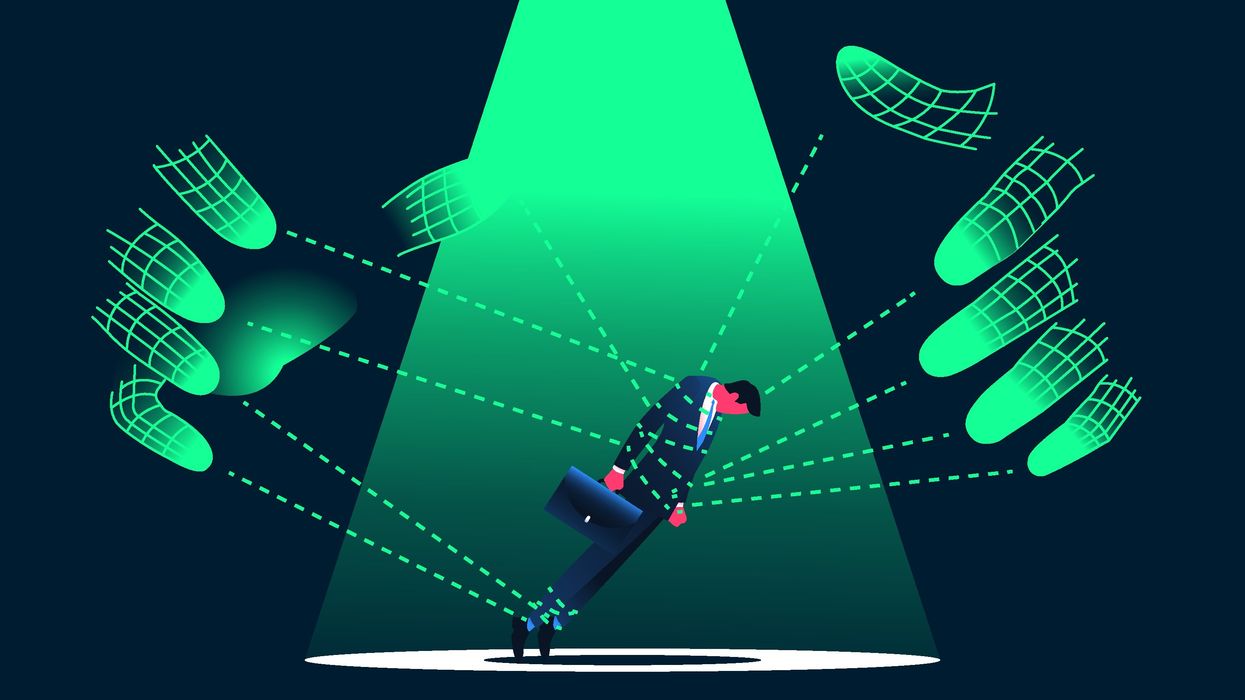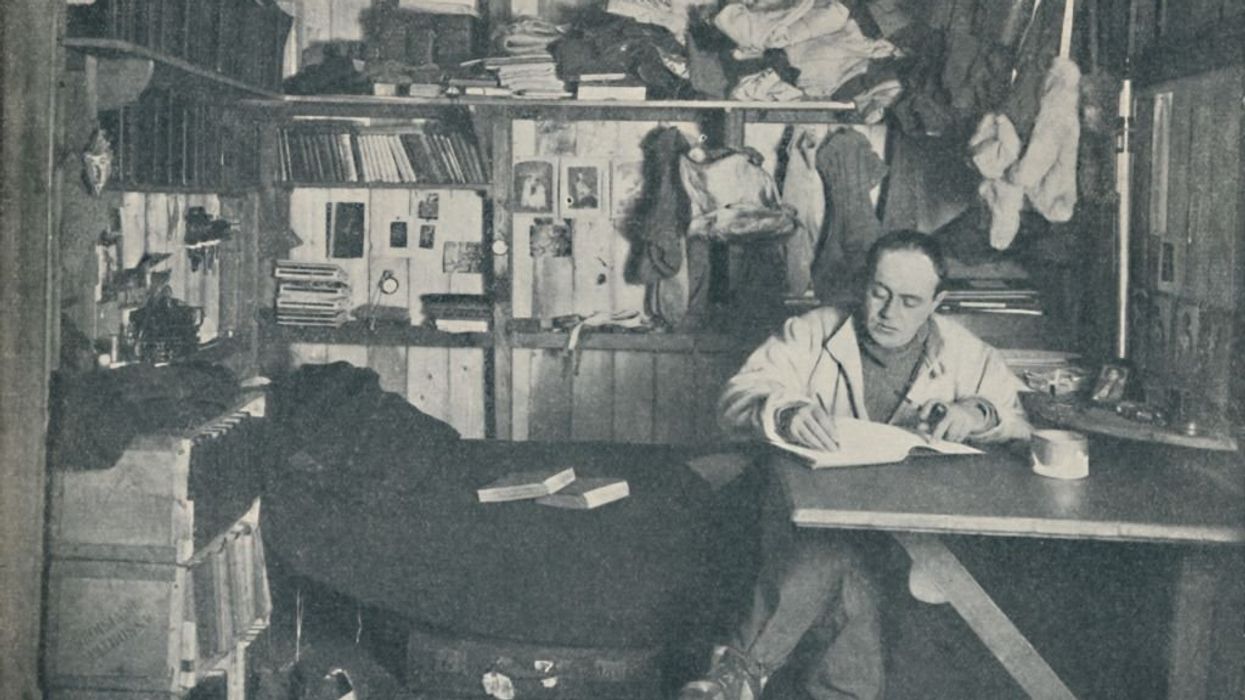WASHINGTON (AP) -- There's always grousing about the many people who don't bother to vote. But look at it the other way: An estimated 133 million Americans will cast ballots in Tuesday's election. Some will persevere despite long lines, pressing personal burdens or the devastation left by Superstorm Sandy. Why do they do it?
It's not because any one voter will decide the contest between President Barack Obama and challenger Mitt Romney.
A one-vote win is rare even in local or state races, which attract smaller turnout. The largest numbers of voters -- about 6 in 10 eligible adults -- come out for presidential years. Yet the presidency's never turned on just one vote, not even in the 2000 recount that flummoxed Florida.
 US President Barack Obama speaks during a campaign rally in Aurora, Colorado, on November 4, 2012. Obama and Republican rival Mitt Romney are both showing signs of exhaustion as they dart from swing state to swing state, trying to fire up enthusiasm among supporters and win over any last wavering voters before November 6 election. Credit: AFP/Getty Images
US President Barack Obama speaks during a campaign rally in Aurora, Colorado, on November 4, 2012. Obama and Republican rival Mitt Romney are both showing signs of exhaustion as they dart from swing state to swing state, trying to fire up enthusiasm among supporters and win over any last wavering voters before November 6 election. Credit: AFP/Getty Images
It's so improbable that scholars debate whether voting is a rational act.
"There is no question that from a simplistic rational view it doesn't make sense to vote," said Kevin Lanning, a political psychologist at Florida Atlantic University. "Even in Florida I'm more likely to be killed in an auto accident going to the polls than I am to cast the deciding vote in the presidential election."
Still, Lanning is a voter.
Andrew Gelman, a professor of statistics and political science at Columbia University, was co-author of a study before the 2008 presidential election that found that, on average, a voter had a 1 in 60 million chance of deciding that race.
The Electoral College means the odds vary by state. This year's chances range from roughly 1 in a million (for a voter in the battleground state of Ohio) to essentially zero (in states such as vastly Republican Wyoming or deeply Democratic Vermont).
That might seem to validate the inertia of the 4 in 10 eligible adults who don't bother to vote even in presidential years.
Yet Gelman's a voter, despite living in the entrenched blue state of New York.
He says voting can be a rational investment of time. That's partly because the outcome affects so many people. It's like entering a lottery that you almost certainly won't win, but if you do win, all 315 million Americans share your jackpot -- the president you believe will do more for the country.
 Republican presidential candidate, former Massachusetts Gov. Mitt Romney speaks during a campaign rally at the Smithfield Foods Hangar on November 4, 2012 in Newport News, Virginia. With two days before election day, Mitt Romney is campaigning in swing states across the country. Credit: Getty Images
Republican presidential candidate, former Massachusetts Gov. Mitt Romney speaks during a campaign rally at the Smithfield Foods Hangar on November 4, 2012 in Newport News, Virginia. With two days before election day, Mitt Romney is campaigning in swing states across the country. Credit: Getty Images
Plus, a democracy relies on its voters. If the numbers drop too low, the legitimacy of the system is at risk. Consider mid-terms, when turnout runs only about 40 percent, or local elections that sometimes dip shockingly low. Voters contribute to the greater good.
How seriously Americans take their presidential votes was illustrated this year by the effort and time that many devoted to obtaining the photo identification required under new laws in some states.
"Every four years we are divided, Republicans and Democrats, by real differences -- in what we feel government should be doing and so forth -- but we are united in this responsibility to keep America going and the privilege to participate in it," said Lanning, the psychologist.
For many, it's a family tradition.
Kelvin Lovely's grandmother always encouraged him to vote, and he took it to heart. The 42-year-old Pensacola, Fla., resident cast his first ballot at 18 and became a regular. "I always want to vote, and I think my vote will have an impact," Lovely said.
Veronica Padilla of Las Vegas is already stressing the importance to her 13-year-old son, five years before he can vote.
 Photo Credit: Getty Images
Photo Credit: Getty Images
"I tell him not to just vote for the most popular," she said. "You have to stand for what you believe."
Tim Farmer, a Denver University law student, attended a Romney rally one day and an Obama event the next because he feels a responsibility to make the right choice.
"Enough wrong votes," Farmer said, "and you get the wrong guy elected."
Adam Brandstetter knows he won't affect the election's outcome. His vote is going to long-shot Libertarian candidate Gary Johnson, "It won't ever matter," said Brandstetter.
But he enjoys the sense of community on voting days in Crystal Lake, Ill., a far suburb of Chicago. Brandstetter will leave the home office where he works as an investment manager and head for the polling place at the Lutheran church, staffed by some of his older neighbors.
"I'll take a walk over," he said, "have lunch, see all my senior friends: `Haven't seen you in a while. What have you been up to?'"
It feels good to vote, Brandstetter said, and to make time to appreciate that "we're in America. We have the freedom to express our views."

 US President Barack Obama speaks during a campaign rally in Aurora, Colorado, on November 4, 2012. Obama and Republican rival Mitt Romney are both showing signs of exhaustion as they dart from swing state to swing state, trying to fire up enthusiasm among supporters and win over any last wavering voters before November 6 election. Credit: AFP/Getty Images
US President Barack Obama speaks during a campaign rally in Aurora, Colorado, on November 4, 2012. Obama and Republican rival Mitt Romney are both showing signs of exhaustion as they dart from swing state to swing state, trying to fire up enthusiasm among supporters and win over any last wavering voters before November 6 election. Credit: AFP/Getty Images
 Republican presidential candidate, former Massachusetts Gov. Mitt Romney speaks during a campaign rally at the Smithfield Foods Hangar on November 4, 2012 in Newport News, Virginia. With two days before election day, Mitt Romney is campaigning in swing states across the country. Credit: Getty Images
Republican presidential candidate, former Massachusetts Gov. Mitt Romney speaks during a campaign rally at the Smithfield Foods Hangar on November 4, 2012 in Newport News, Virginia. With two days before election day, Mitt Romney is campaigning in swing states across the country. Credit: Getty Images
 Photo Credit: Getty Images
Photo Credit: Getty Images


